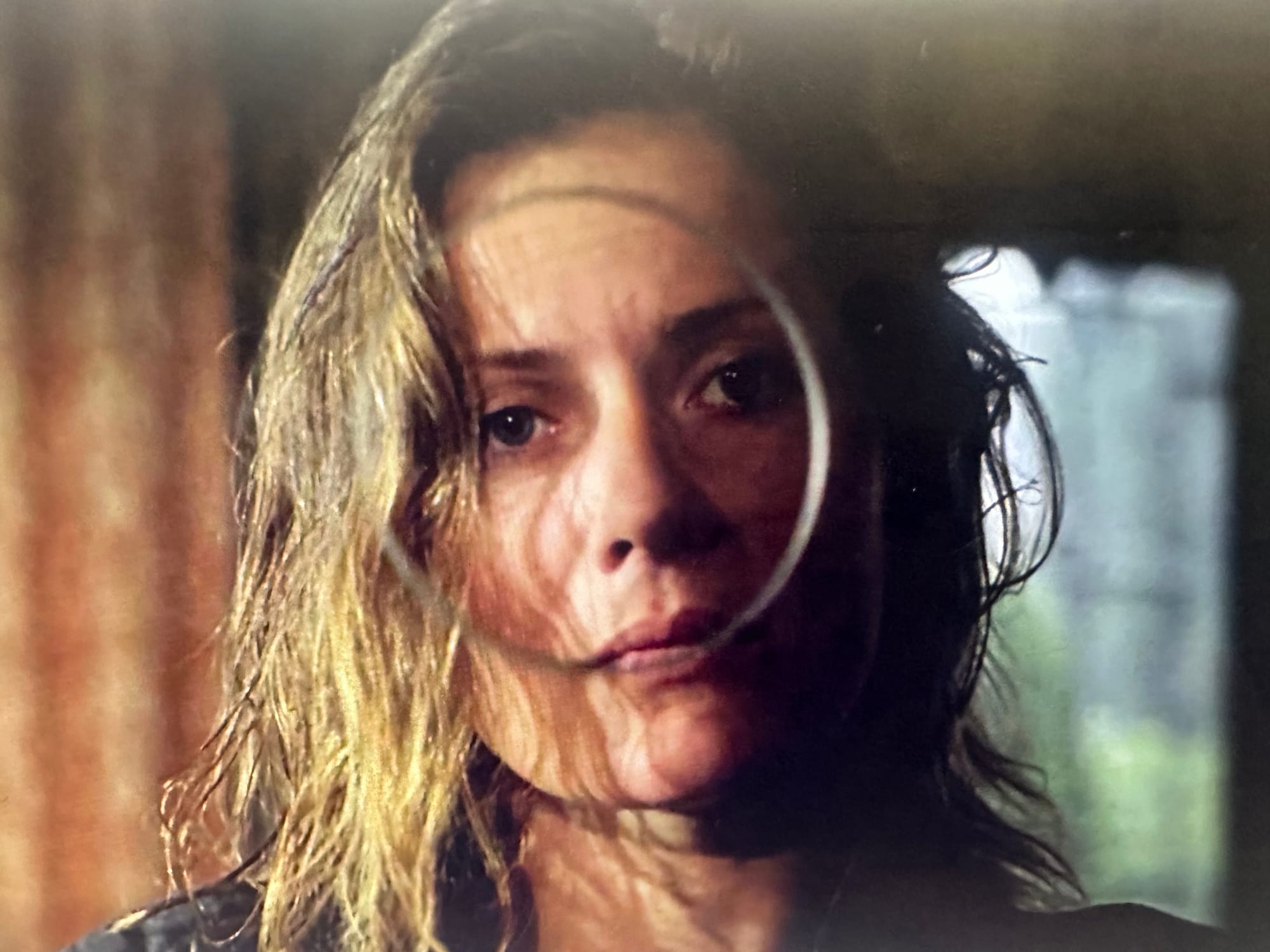Dekalog 6: Part 8, Magda

In the film that spun off from this episode — “A Short Film About Love” — Magda responds to Tomek’s self harm with a period of self reflection, followed by her own romantic feelings for him.
There is a little evidence for this in the episode, enough for the actors to convince Kieslowski to let the story further develop this way, but there’s no question from the way the episode itself ends that Kieslowski had no intention of ever making these two characters a couple.
Instead, the closing scenes are more about Magda coming to terms with her own guilt, and perhaps reassessing the casually sexual way she lives her life — one where she declared that there is no such thing as love.
But before moving on with those scenes, I want to acknowledge that 1988 Poland is lightyears away from us culturally and there are clearly some misogynistic patterns in this episode. The fact that we are even discussing Magda coming to terms with her behavior seems extraordinary in contemporary terms.
This is a woman who did nothing more than live her life freely, consensually, entertaining herself with some men and, unfortunately for her, she didn’t draw the blinds. This led to two young men spying on her — one of them going far beyond Peeping Tom behavior to commit mail fraud and to dox her with fake utility company alerts.
Really, it’s astounding that Magda is the one who is being held accountable for her actions and behavior. Another issue that is bothersome in contemporary terms is the way she is made responsible for Tomek’s mental health. It’s appalling to blame another person for a human being attempting self harm. It is always — unless directly forced by another person — a singular responsibility when a tragic act like this takes place.
So, as we enter the conclusion, I feel empathy for the way Art Guy punched him, the anguish he felt when his love was declared non-existent and for his sexually unreadiness for what Magda and he experienced. But the moralism suggested here is unusual for Kieslowski and ill fitting with the rest of the Dekalog.
Back to the show, Magda drops by the post office, but does not see Tomek, only a sign at his usual desk saying his line is closed. She thinks for a moment about checking on him there, but he sees the very angry supervisor from the earlier scene — engaged in another argument, this time with a fellow employee — and she thinks better of it and leaves.
Then back at the apartment complex, in the mailroom, she sees the mailman come by. She asks what happened to the boy who worked at the post office. He gossips, appallingly, that he cut his wrists out of love.
Magda looks stunned, then asks him — as if she really needs confirmation that it’s the same boy — what is his name? The mailman says he doesn’t know. Magda slowly drifts towards the courtyard, our back to her. When she gets to the door, she slides down to her knees.
Next she is awoken by a call in the middle of the night. She hears nothing on the other end. She asks if this is Tomek. She looks out the window to see if he is in the window, but sees nothing. She says that she has been looking for him, visited several hospitals, and wanted to tell him that he was right.
After saying that she doesn’t really know what to tell him, she hangs up the phone. The phone immediately rings — it’s another man who was having trouble getting through. She asks him if he heard what she just said. When he says no, she immediately hangs up on him. There’s a sense from this that she’s given up on her random men, at least for now.
Next we get a series of lonely, yearning searches from her, through her spyglass, for a sign of Tomek in his window. Finally, she does see two silhouettes in the darkness. Maybe he has returned? The next morning she hears another milk delivery. She has the sense to put an overcoat over herself instead of walking out in underwear.
There she sees the old woman and asks him if Tomek has returned. She says, not yet and hands her the milk.
Next, we see Magda returning to the post office. I have to say, I haven’t found this character especially attractive through most of the episode, but I find sad Magda very appealing. It’s just my thing — I think the only time I’ve ever found Gwyneth Paltrow attractive is when she played a depressed character in “The Royal Tennenbaums.”
Magda now sees Tomek and her eyes light up a little. She goes to his window. There’s this gorgeous framing where you can see her left eye reflected into the circular cut out in the glass where customers talk to the clerks. Madga has nothing to say, she just looks at Tomek in awe.
Finally he talks. He says only, with a shrug “I don’t spy on you anymore.” The camera gives us Magda’s soft, sad expression as it fades out.
Like I said before, the movie gives us a different ending, and I think just getting this bad moralistic taste out of our mouths is enough, in my opinion, to make it superior, even if it turns out to be overly romantic.
In this case, I’ll take sappy over cruel.